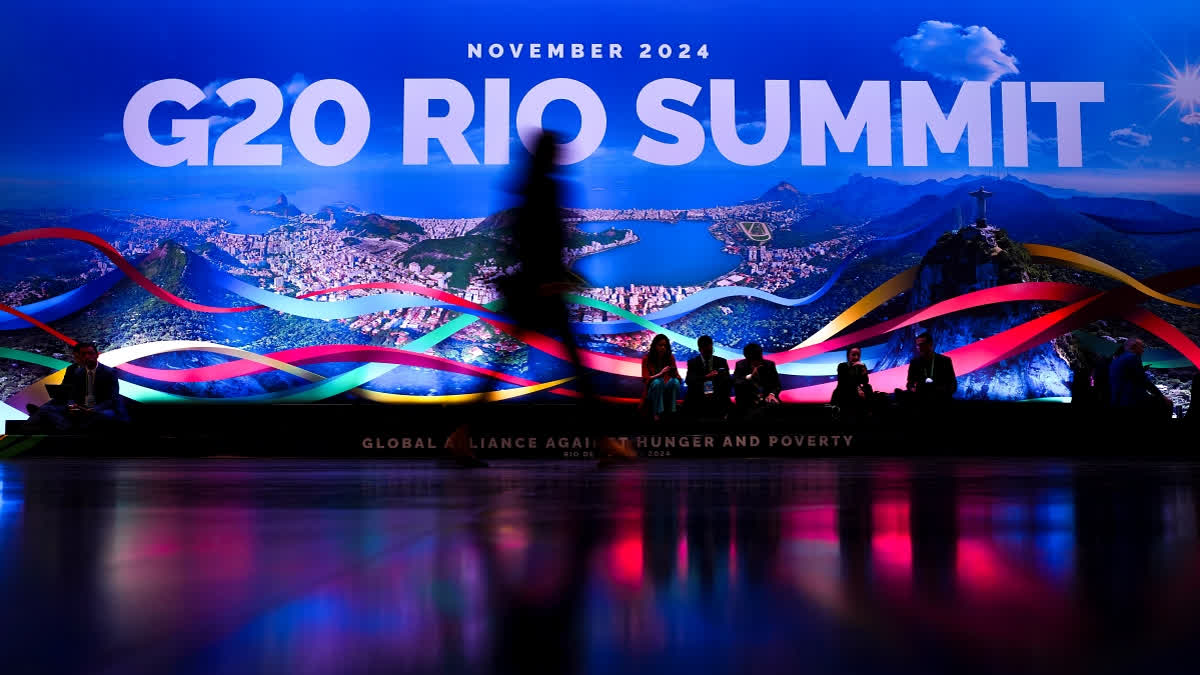Baku (Azerbaijan):G20 leaders have not given a strong signal to negotiators trying to agree on a new finance package to support climate action in developing countries, many climate experts feel.
However, they say it is important that the 20 richest nations in the world, accounting for 80 per cent of global greenhouse gas emissions, have reaffirmed their support for multilateralism and the UN climate convention to solve climate problems.
This comes amid concerns about the US and Argentina pulling out of the Paris Agreement, which has hurt the morale of negotiators at the talks in Baku. The G20’s pushback on "unilateral trade practices", like the EU's Carbon Border Adjustment Mechanism, is also seen as crucial for developing countries.
That said, experts note some key gaps in the G20 statement. It does not explicitly mention transitioning away from fossil fuels or mobilising resources to address loss and damage caused by climate change.
Vaibhav Chaturvedi, a senior fellow at the Delhi-based Council on Energy, Environment, and Water, said the G20 is not the right platform to discuss the new climate finance package being negotiated at COP29 under the UNFCCC process.
The real issues about quantum and who will contribute are not addressed at the G20. These questions go beyond the G20, he said. He added that the G20 leaders’ emphasis on multilateralism is important. "This is one of the first points in the climate section. Despite uncertainties like the US and Argentina pulling out, they have stressed that the multilateral process is key," Chaturvedi said.
Harjeet Singh, climate activist and Global Engagement Director for the Fossil Fuel Non-Proliferation Treaty Initiative, criticised developed nations in the G20 for failing to specify the trillions needed or ensure funds are given as grants, which are crucial for climate justice.
